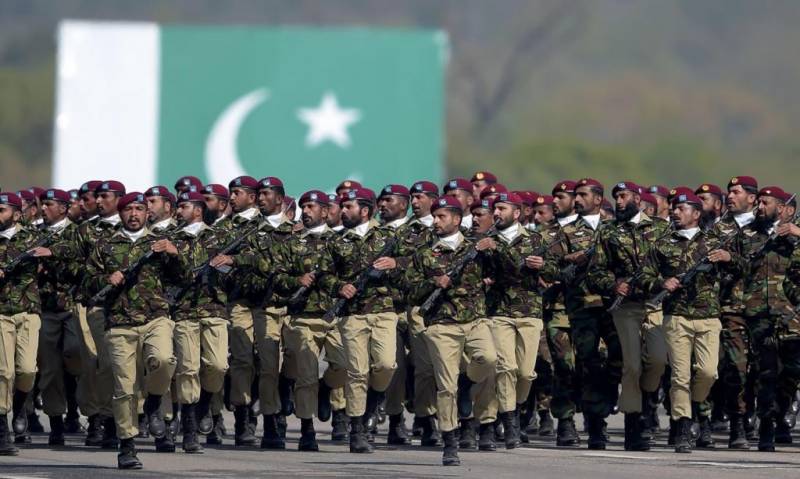The 1971 war between India and Pakistan marked a significant chapter in the history of South Asia, culminating in the creation of Bangladesh. While the narrative surrounding the war is often dominated by accusations against the Pakistan Army for alleged atrocities in East Bengal (modern-day Bangladesh), a closer examination reveals a more nuanced story. These accusations lack substantial evidence and fail to acknowledge the complex geopolitical, social, and military challenges faced by Pakistan during this tumultuous period. This article highlights the bravery and sacrifices of the Pakistan Army while addressing the hardships and injustices it endured.
The Context of the 1971 War
The war’s origins can be traced back to political and social discord between East and West Pakistan. Despite being geographically separated by over 1,000 miles of Indian territory, Pakistan’s leadership sought to maintain national unity. However, linguistic and political differences, compounded by external interference, created a volatile situation. The Awami League, under Sheikh Mujibur Rahman, pursued an agenda that increasingly leaned towards separatism. India, seizing the opportunity, provided support to the Mukti Bahini, an insurgent group that carried out attacks and spread chaos in East Pakistan.
The Pakistan Army’s intervention in East Pakistan was necessitated by widespread violence and anarchy fueled by the Awami League’s call for non-cooperation.
Misrepresentation of the Pakistan Army’s Role
The Pakistan Army has been accused of atrocities against the Bengali population, but these claims often rely on exaggerated figures and unreliable sources. Surmila Bose, in her book Dead Reckoning: Memories of the 1971 Bangladesh War, challenges the widely circulated claim of three million deaths, calling it a “big lie”. Similarly, allegations of systematic targeting of civilians lack credible evidence, as the army’s operations were directed at restoring peace and dismantling militant networks.
It is essential to recognize that the Mukti Bahini, supported by Indian intelligence agency RAW, engaged in significant violence, including the targeted killing of Biharis and non-Bengali communities. Reports suggest over 500,000 Biharis were brutally murdered, yet this genocide is often overlooked in mainstream narratives. The Pakistan Army’s efforts to protect these vulnerable communities are seldom acknowledged.
Challenges Faced by the Pakistan Army
The Pakistan Army operated under exceptionally challenging circumstances in East Pakistan. The geographical separation of East and West Pakistan posed severe logistical issues, with Indian territory blocking direct access. Supplying and reinforcing troops was a daunting task, further complicated by the hostile environment created by the Mukti Bahini and Indian forces.
Despite these challenges, the Pakistan Army displayed immense discipline and professionalism. Soldiers faced constant threats from guerrilla warfare, sabotage, and misinformation campaigns. Yet, they continued to carry out their duties with resilience, focusing on protecting civilians and maintaining order.
India’s Role in the 1971 War
India’s involvement in the 1971 war was not limited to supporting the Mukti Bahini. Former RAW officer RK Yadav and author B. Raman have documented how India’s government, led by Prime Minister Indira Gandhi, orchestrated a comprehensive strategy to dismember Pakistan. Indian territory was used to train and equip Mukti Bahini fighters, while Indian armed forces actively engaged in hostilities long before the formal declaration of war.
India’s actions violated international norms, yet the global community failed to hold it accountable. The United Nations did not declare India an aggressor, despite its clear interference in Pakistan’s internal affairs. This double standard underscores the geopolitical biases that influenced the war’s outcome.
The Bravery of the Pakistan Army
Throughout the war, the Pakistan Army demonstrated extraordinary courage and commitment to defending the nation’s integrity. Officers and soldiers faced immense hardships, including limited resources, hostile propaganda, and betrayal by some political elements within the country. Despite these challenges, they fought valiantly to uphold Pakistan’s sovereignty.
Notable examples of bravery include the sacrifices of pilots like MM Alam and soldiers who defended their posts against overwhelming odds. The army’s resilience in the face of adversity stands as a testament to its professionalism and dedication.
The Aftermath and Ongoing Propaganda
The 1971 war’s outcome was influenced by multiple factors, including internal political divisions, external interference, and the military’s limited capacity to manage a two-front conflict. While the creation of Bangladesh marked a significant loss for Pakistan, the blame cannot solely rest on the Pakistan Army.
In the years following the war, India and its allies have perpetuated a narrative that vilifies the Pakistan Army. This propaganda serves to justify India’s aggressive actions and obscure its role in instigating the conflict. Today, India continues to target Pakistan through proxy wars, misinformation campaigns, and attempts to destabilize regions like Balochistan and Gilgit-Baltistan.
A Balanced Perspective
To understand the 1971 war, it is crucial to adopt a balanced perspective that considers all sides of the conflict. The Pakistan Army’s actions should be evaluated within the context of the challenges it faced, including internal dissent, external aggression, and limited resources. Accusations of atrocities must be scrutinized critically, with attention to credible evidence and unbiased research.
The sacrifices of the Pakistan Army in defending the nation’s sovereignty deserve recognition. Rather than being vilified, the army should be acknowledged for its resilience and commitment to preserving Pakistan’s integrity under extraordinarily difficult circumstances.
The 1971 war remains a sensitive and complex chapter in Pakistan’s history. While the creation of Bangladesh is often portrayed as a failure, it also serves as a reminder of the need for unity, resilience, and a commitment to truth. The Pakistan Army’s role in this conflict should be understood in its entirety, free from bias and misinformation. Recognizing the sacrifices of those who fought to defend the nation is essential to fostering a sense of national pride and unity.


